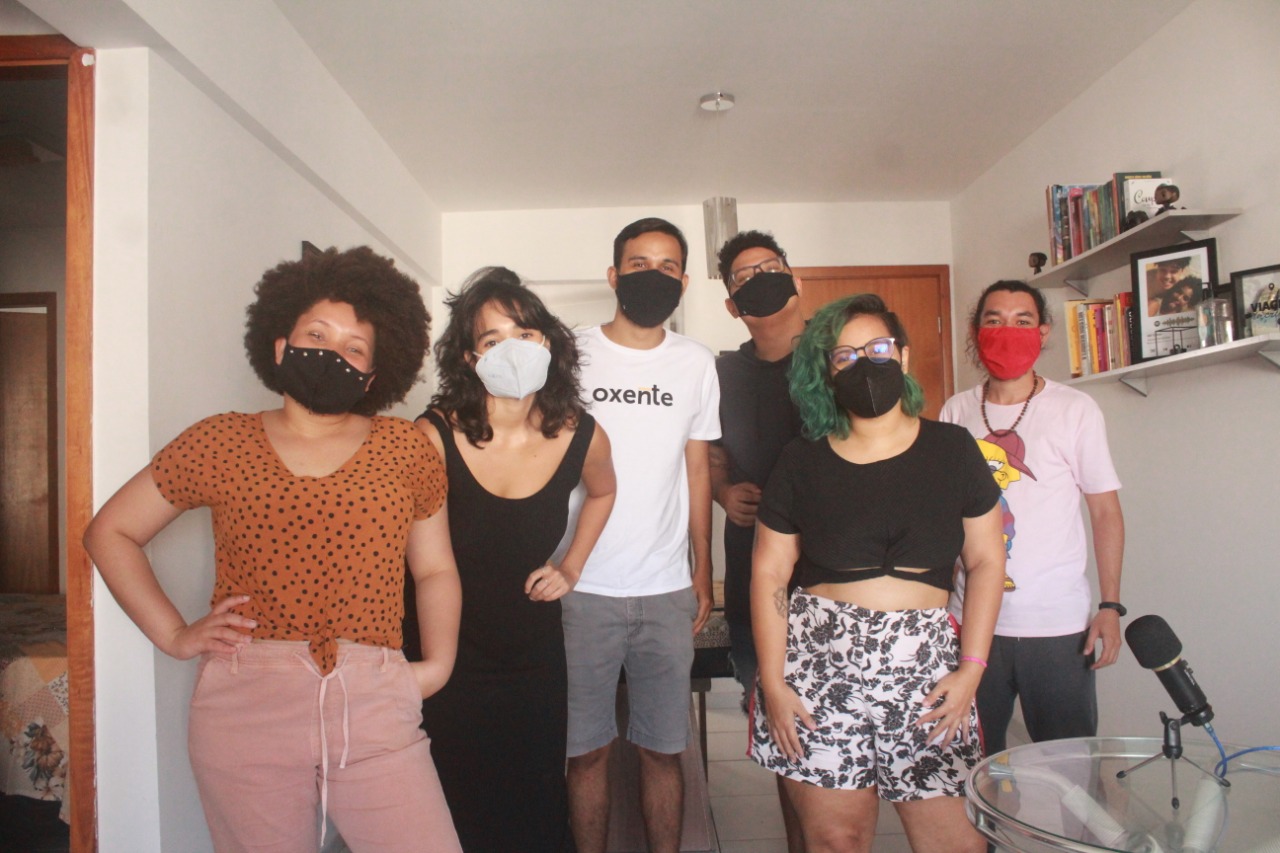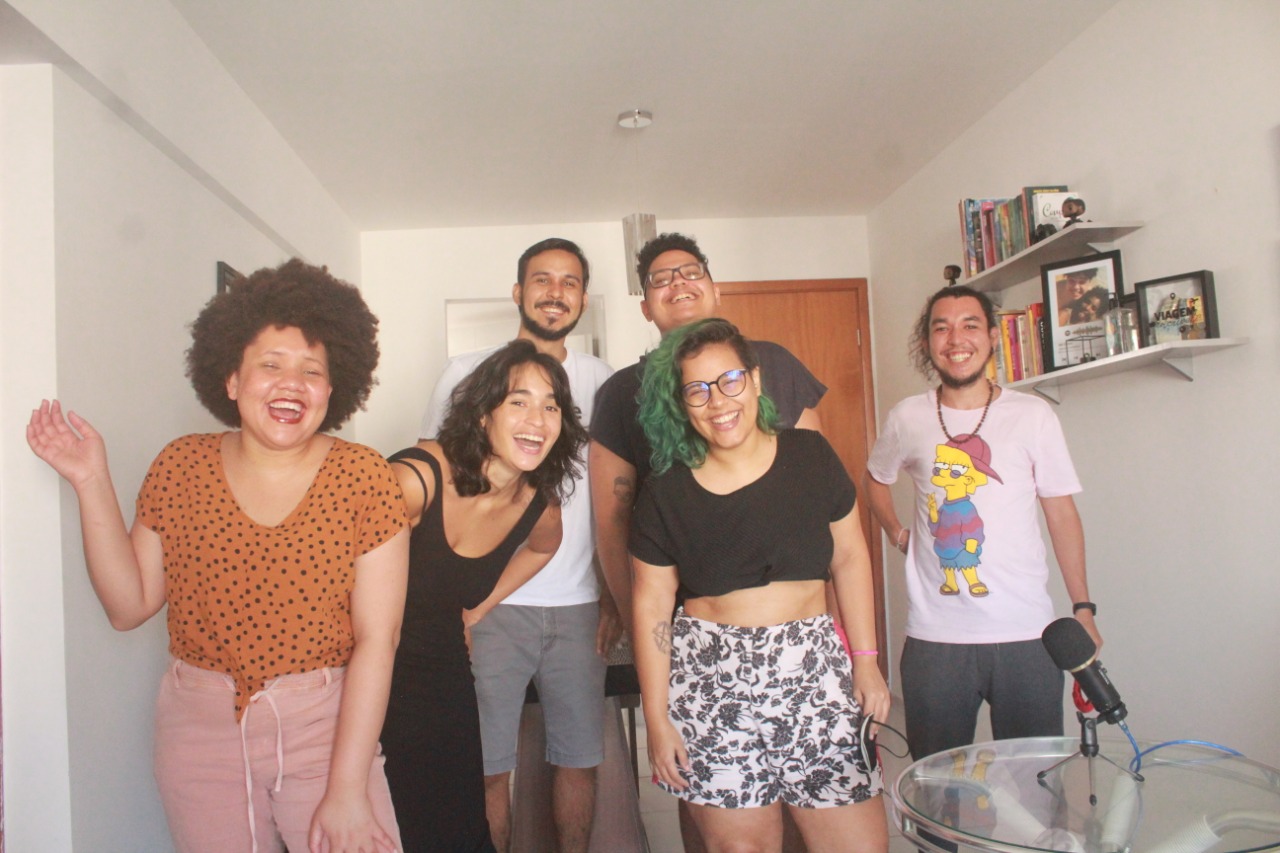Griot Podcasts: boosting new northeastern narratives
From Olinda (PE), Caio consumed a range of podcasts that served as a reference for this to be his main source of income today


Credit: Disclosure
By: Eduarda Nunes – Lupa do Bem / Favela em Pauta
The consumption of podcasts in Brazil grows year after year. In 2020 alone, the beginning of the Coronavirus pandemic, the number of consumers increased by 33% and went from 21 to 28 million listeners, according to Ibope.
The audience of this media is formed by a majority of people up to 34 years old (51%), from class C (51%) and who live in the Southeast (46%). Although the consumption and promotion of podcasts is still predominantly southeastern, in the northeast region there are many producers working towards decentralization. Caio Santos, from the producer Griot Podcasts, is one of them.
The political scientist says he got to know the podsfera, the podcast scene, in 2017, at the recommendation of friends. He was immediately enchanted: in the same year he started a program with friends to talk about relationships, Xamegocast.
Since then, Caio started to develop some production expertise and in 2019, after having already consumed many productions, he created his own audio program. “Griot was created from the moment I decided that I was going to use my study in politics to transform information into something palatable, more didactic than academic articles. So I came up with the idea of making Política É Massa (Politics Are Cool)”.

Griot Comunicação Política emerged as a production space in various areas such as politics, communication consulting, research, podcast and photography. But only in 2021, with the increase in audience in 2020, participation in promotion and acceleration events – such as Sound Up Brasil, by Spotify – and a partnership with Vendaval Catalisadora, the audio programs became a priority.
Currently, the producer produces four programs and is crowdfunding to continue with the creations.
In addition to Política É Massa, the programs “Designers Diásporicas”, which joined the Griot team with the arrival of Marina Maré and Ruthy Rayane, “Gritaram-me Negra” and “Chié” bring the production company to life. With the redefinition of the producer, Griot launched crowdfunding to produce more and more content.
Griot is part of the northeast podsphere that seeks to make the region less and less distant from the consumption and media incentive scenario that takes place in the Southeast. “There is a podcast scene in the northeast, but it’s still in a hot pre-market phase. The companies here have not yet been able to understand the potential of this media in terms of the market logic”, says the producer.
From 2019 onwards, Caio has already been part of some acceleration and training programs that made it possible to produce the programs mentioned above.


In addition to regional diversity, Griot’s productions also compete for space for black narratives. Among the references that Caio brings with him to this front are “O História Preta” and “Vidas Negras”. “Very powerful and potent productions that have this narrative touch that I really like to do”, he highlights.
Why a podcast?
The political scientist relates podcast consumption to the tradition of orality that is still very strong, especially among people from the periphery. “We come from an oral tradition that is this thing of sitting and listening to your grandmother telling, your uncle telling, your mother telling stories. You listen and travel through it, your imagination explodes from that”, he says.
The elasticity of the media and the possibility of capturing characters‘ expressions stand out for Caio. Chié and Raízes were productions made from external funding programs and expanded this perception for him. “The magic of this media is to keep this orality registered. Paper is important, but it’s nice to have your speech recorded. The mannerisms, the accents, all that the podcast allows you to do”.
The first one is the story about the place where his father and uncle were born and raised, on Ilha do Chié, located in Recife (PE). Issues such as social inequalities and violence of various kinds permeate this experience, but the look and manner of each of the more than 10 characters who participated and told their versions is what makes the difference.
In Raízes, a product still in the editing phase for availability, Caio seeks to tell the story of Brazilian families and understand how they see and express internal, subjective and external issues of life in society.
In addition, the initial cost of producing programs also serves as an incentive. It is possible to start producing with only a cellphone, but, according to Caio, it is important to invest in order to grow in the area.
“We joke that the podcast is a very intimate medium, because it talks in your ear. It’s not everyone you let talk in your ear”, jokes the producer. Intimate and intimidating, by the way, because consuming a podcast is not like opening a video site and being bombarded by content. It is necessary to find a way there: either through a friend’s recommendation, as was the case with Caio, or through social media.


